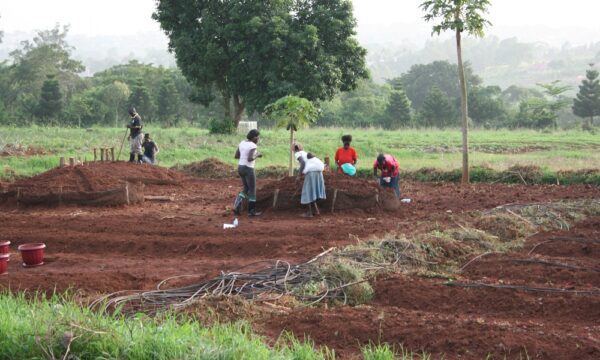ITS not often that speakers forgo the chance to present in favour of opening up debate, but this is exactly what happened here at the World Congress Public Health 2012 (Addis Ababa, Ethiopia,Tuesday April 24), in the session “Law: a public health tool”. Moderator, Michele Forzley, chose not to talk on access to medicines in favor of a longer group discussion, following presentations from 3 African speakers on law related to women’s rights, public health emergencies, and setting up NGOs.
Split into small groups, we, the audience, were asked to identify public health issues which persisted despite knowing the cause and cure, and despite the existence of laws providing protection. The speaker panel then commented on the identified issues, relating them to existing law in their various countries and suggesting why the law had failed to protect.. Michelle Forzley supplied the international perspective.
Issues identified by the groups related to LMICs (low and middle income countries) and included khat use by young people in Ethiopia; environmental pollution from mining; migrant rights; counterfeit drugs, poor quality breast milk substitutes; training needs of public health workers to enable them to defend and advocate effectively for public health law enforcement; and food labelling/quality, particularly of imported foods.

The panel’s explanations of why the law had failed to protect for the issues identified, fell into 3 categories:
- Laws had not been enforced.
We learnt that in Uganda, environmental health law existed, which would be relevant to problems of mining, but it was not implemented. To address this they created “Environment Police” under a national environment authority.
- Laws had deliberately not been made.
Khat is a leaf chewed for its stimulatory properties: its associated with increased blood pressure and with alcohol abuse. Reducing khat-use by criminalizing it was not an option in Ethiopia, as its part of the cultural heritage in some regions.
- Laws did not yet exist.
Countries can & do base laws on WHO guidelines for the nutritional quality of breast milk substitute. LMICs without such laws were advised by the panel to do the same. No law existed on food labeling apparently as “Food labeling & quality has not yet reached the point of being considered for law-making”; in other words society has not become concerned enough yet to force it onto government agenda.
Linked to law enforcement, it was agreed that lawyers could & should help public health associations, and their members, defend existing laws more vigorously. However the groups felt that to make this work, public health professionals needed sufficient legal training to be confident in presenting their case or to know when to call on legal advice. Judges also needed guidance in understanding the importance of public health in order to administer the law.
Lawyers in public health will have a lot of work! Dr Sekempi, the Ugandan presenter, filled at least 3 slides with a long list of Ugandan laws related to public health as well as disasters, including building regulations and road safety.
At the end, Michele Forzley summed up the reason for the session: “Studies have shown that when rule of law is respected, economies grow, and with economic growth, health improves.”
It’s a ‘no-brainer’ then.
The answer to the question ‘Is there a role for lawyers in public health?’ is YES.
Public health professionals need you, the lawyers, to be “dogfighters for public health”.
Relevant references from the Global Health database:
Nutrient profiling: are dairy products really unhealthy?
Global food security: ethical and legal challenges 2010 pp. 228-233 ( conference paper)
Food labeling and the prevention of overweight and obesity: a systematic review.
Cadernos de Saude Publica 2011 Vol. 27 No. 11 pp. 2083-2094
Breast-milk substitutes: a new old-threat for breastfeeding policy in developing countries. A case study in a traditionally high breastfeeding country. PLoS ONE 2012 Vol. 7 No. 2 pp. e30634
Khat – a controversial plant. Wiener Klinische Wochenschrift 2009 Vol. 121 No. 19/20 pp. 604-614
Related News & Blogs
Data sharing initiatives promoted by CABI with partners in Ethiopia
A CABI team have highlighted their work on enabling FAIR and responsible data practices at a workshop in Ethiopia. The workshop focused on raising awareness on the recently adopted data sharing initiatives Soil and Agronomy Data Sharing (SADS) directive and the National Soil Information System (NSIS).
16 April 2024




